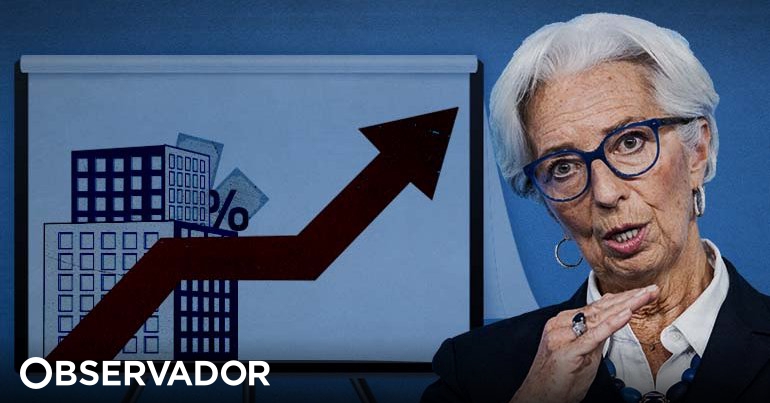You have free access to all observer articles for being our subscriber.
Euribor prices may not be a negative “floor” anymore next June, in the case of a 12-month index. Within the deadline for six months The same can happen in September and Three months In November, according to offers of daily-traded interest rate derivatives that have risen sharply in recent weeks, given rising inflation in Europe and the possibility that the European Central Bank could speed up the withdrawal of monetary stimulus. You are The effects on credit installments will not be immediate, but will be significant.
The rise in these indices accelerated sharply in these early months of 2022, based on the development of Euribor futures (traded on the London International Financial Futures and Options Exchange, or LIFFE) and in a type of complex instrument called forward rate agreements. It suffices to go back a few weeks and analyze this data, until The end of last year, the financial markets were betting that it will be much more right on time That moment when Euribor prices returned to non-negative levels.
On December 31, 2021, when Euribor for 12 months It was around -0.50%, and the market expectation was that the index would reach the “water line” Only in February 2023 It is now June 2022, i.e. the date when investors expect to present this development in time by eight months. For those who have credits Indexed for 6 monthsZero Euribor has been predicted in June 2023 (now September 2022) and for less frequent cases where it is Euribor for three months The date the markets expected is November 2022 (it was December 2023).
What is most worrying for those who have loans, specifically variable rate housing loans, is that after that symbolic moment of Euribor’s return to zero (after more than five years it was negative), Rates may continue to rise. The market indicates that the three-month index may reach 0.5% in March or April 2023; In six months, it may reach the same level of 0.5% in the first months of 2023; And in the 12-month Euribor, it may be older – between November and December 2022.
Euribor takes a ‘leap’ and is back to pre-Covid in a few days

Euribor price has been developing for 12 months in the last two years. Source: Euribor-Rates.eu
What could that mean in practice? In a simple arithmetic, the family containing diffuse 1% for a loan of 150 thousand euros for a period of 30 years – indexed for a period of three months – you pay a premium of 447.27 euros. If Euribor reaches 0.5%, the premium will increase to €517.68, i.e. a An increase of more than 70 euros per month. What is more disturbing if we take into account High inflation that was already putting pressure on him family budgets.
Philip Garcia, an economist at the International Monetary Fund – Information on Financial Markets, warns that these interest rates are not always able to translate into reality what will happen next, because they are instruments characterized by some volatility. Just remember that in the spring / summer of 2021, the specialist recalls, the signal given by these derivatives was that Euribor prices would remain negative for several years, possibly until 2026. Something, for the time being, seems unlikely to happen.
However, the trend is unquestionable. “Have interest rates fallen to the lowest level? There is no doubt about it. Premiums won’t go down again,” says Felipe Garcia, anticipating that the trajectory should worry us because “Many people are not used to thatafter many years of low or negative interest rates, they have already taken these levels of premiums for granted, and now it can be complicated.” Obviously, “if people also have salary increases, or if they have a sense of saving in years The latter, they will be able to absorb – otherwise they will pay more to the bank and that means there will be less left for you to spend on other things.”

“Wannabe internet buff. Future teen idol. Hardcore zombie guru. Gamer. Avid creator. Entrepreneur. Bacon ninja.”

